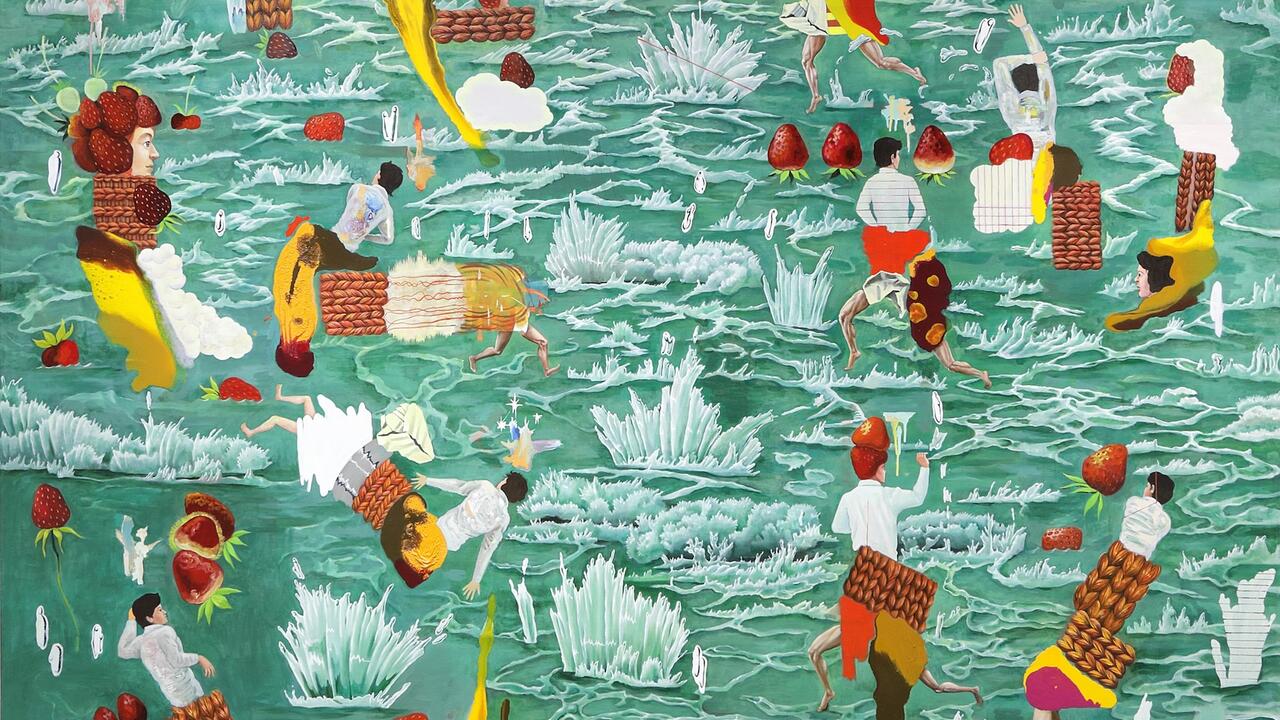Announcing the Food Issue
Food is personal, and so is this issue – the first of frieze to focus on food’s aesthetic, sensorial, political and environmental role in contemporary culture
Food is personal, and so is this issue – the first of frieze to focus on food’s aesthetic, sensorial, political and environmental role in contemporary culture

At the now-shuttered Café Loup in Manhattan’s West Village, where writers and artists gathered for decades, the dining room was always dimly lit and the walls were covered in bad reproductions of beautiful photographs of Italy. No meal was cheap, except the burger, which was average – the kind you might buy on the street, not the farm-to-table patty customary in a pricey, no-longer-quite-chic bistro on 13th Street. What made Café Loup exceptional was its clientele; it was the sort of New York watering hole we can scarcely imagine existed, even though it did only months ago. Lynne Tillman and Fran Lebowitz could be found at a table in the back; Edmund White and his partner not far from them; younger novelists and poets, including many regular contributors to this magazine, in the front, at the smaller, unreserved tables. To the disappointment of everyone below 14th Street, the restaurant closed this year. Where would we go now?
Food is personal: it situates you in a place and a time, among friends or alone, in a city or in the countryside, and this issue – the first of frieze dedicated solely to the topic of food – is personal, too. In it, you will find recipes by artists, short fiction and memoirs, essays and interviews that address the twinned conditions of the global supply chain – scarcity and abundance – with an eye not only on the present, but also on the future. Contributors recall the foods, real and imagined, that have changed them, and have invented new ways for thinking through the platitudes that make writing and creating art about food so difficult. We all know that food brings us together and makes cultures cohere, but here you will also read about disparity and inequity – the ways of hunger.
In this issue, ruangrupa – the Jakarta-based collective tapped to curate documenta fifteen – writes about the lumbung, an Indonesian tradition ‘in which farmers pool together surplus from their harvests’, forming not only a small economy, but a social architecture whereby art and community derive meaning. Other pieces take a similarly broad view of food, seeing in its cultivation, production and distribution new ways for imagining artistic practice. Sociologists Luc Boltanski and Arnaud Esquerre discuss the goods of luxury markets; author Jane Black writes about the ‘climate-resistant menus’ of the artist duo Cooking Sections; artist Anna Maria Maiolino explains how, as a young immigrant, she ‘cannibalized’ the cultural influences of Brazil; and Jesse Connuck surveys four artists and collectives whose work around food challenges colonialism and Western knowledge systems.
One jarring, personal absence: an essay by the late American poet Kevin Killian, whom we commissioned to write about his favourite meals in San Francisco, where he lived for most of his life. He only wrote a few paragraphs before he passed away on 15 June. We wonder what he might have recalled from those years of dining out in the city that invented Crab Louis and the fortune cookie. Provocatively, the extant document’s header reads ‘Adam Linder Dancing’, which suggests that a meal often leads to much more than just food at the table. (So it was at Café Loup.)
Killian wrote about food in California elsewhere, including in ‘The Gifts of San Francisco’, a poem from his last collection, Tony Greene Era (2017). In it, he recalls the many tasty confections of the titular city, eventually giving way to his exhaustion with ‘hobbling lists’ that ‘throw ashore your appetites’. He returns, in the last few lines of the poem, to the city itself, with its ‘colours and germs’ of generosity – themes shared by all in this issue.
This article first appeared in frieze issue 205 with the headline ‘A Personal Burger’.


























